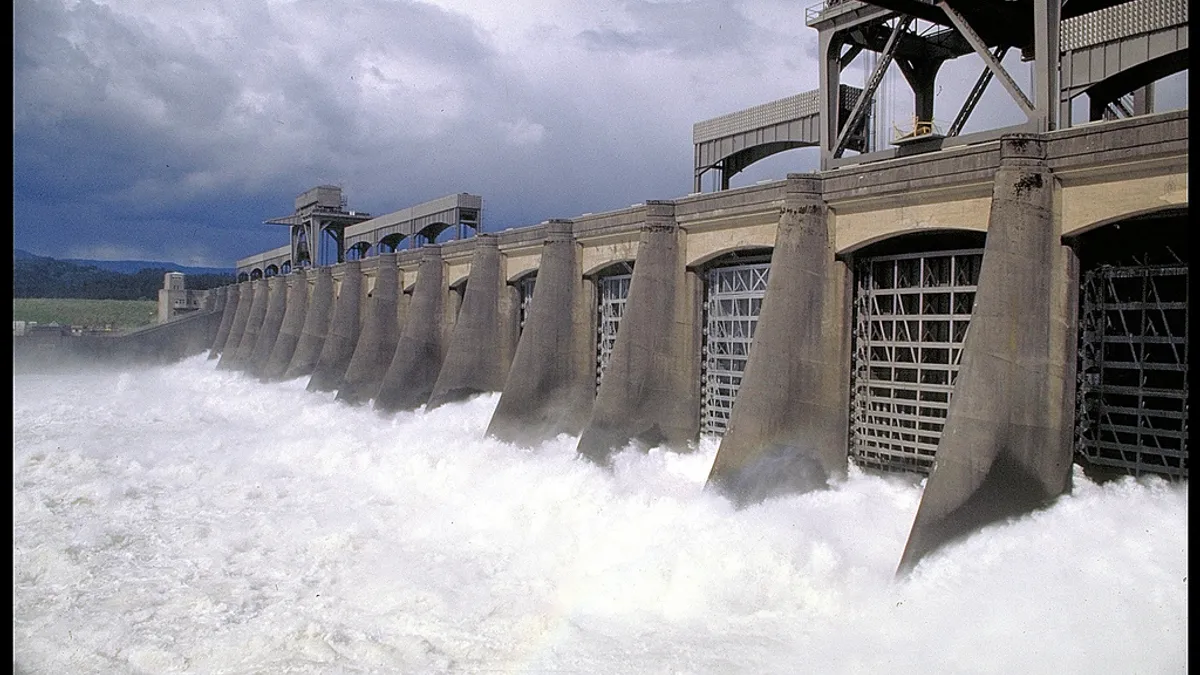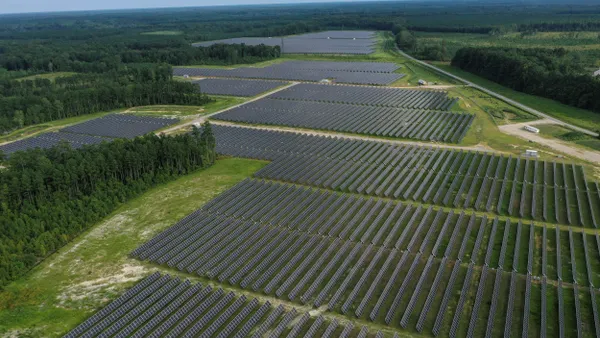Dive Brief:
- New data from the U.S. Energy Information Administration shows that for the first three quarters of 2016, renewable energy including conventional hydro resources generated 15.1% of the United States power consumption.
- That's up from just over 13% last year, with carbon-free energy getting a boost from growth in wind, hydro and geothermal resources. Solar power showed the greatest increase, generating 41% more power than it did in the same period of 2015.
- In total, non-hydro renewables grew by 18.8% and accounted for 8.5% of total net electrical generation so far this year.
Dive Insight:
Natural gas will make up the largest share of generation next year, but the EIA's Electric Power Monthly report gives an indication of just how quickly carbon-free sources are growing.
A non-profit research organization backed by the American Solar Energy Society has broken down the agency's new report, finding that only biomass showed a small decline in generation during the first three quarters of 2016. All other renewable sources increased. Both utility-scale and distributed solar combined to supply 1.4% of generation, up from less than 1% in 2015. Total generation from solar sources rose 41.3%.
Wind power increased almost 22% and makes up 5.2% of the U.S. supply, up from 4.3%. Hydropower has "largely rebounded from the 2015 drought," the advocacy group said, and increased its output by 9.1%.Gas generation increased 7.5%, while coal dropped 13.4%.
Ken Bosong, executive director of the SUN DAY Campaign, said efforts by President-elect Donald Trump to revitalize the coal industry, as he has promised to do, would likely be too late.
"One wonders whether the incoming Trump Administration and Republican leadership in Congress will see the handwriting on the wall," Bosong said. "Or will they engage in a futile effort to resurrect the dying fossil fuel and nuclear power technologies of the past."
But before Trump takes office, work is being done on a Congressional bipartisan energy bill before the legislative session wraps up in two weeks. And while Trump campaigned on revitalizing the fossil fuels industry, the incoming administration has indicated it does not intend to threaten renewable subsidies.















